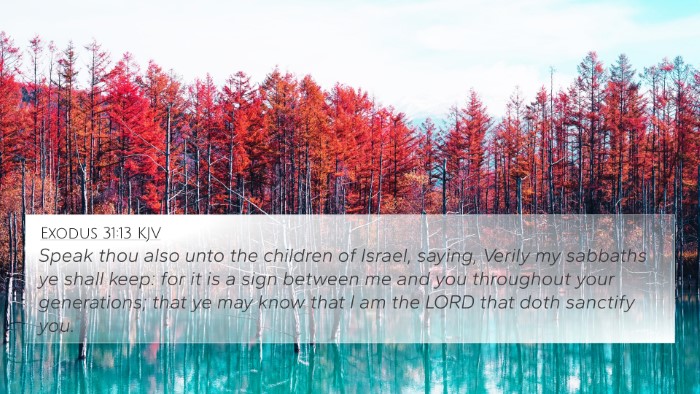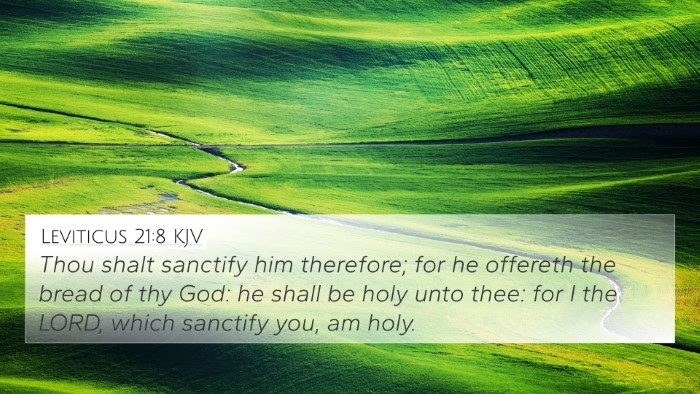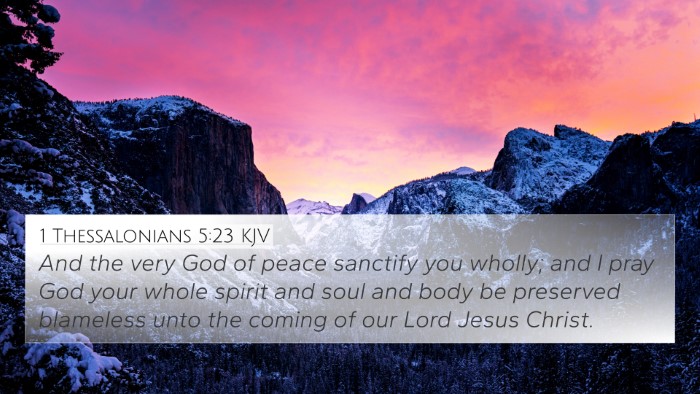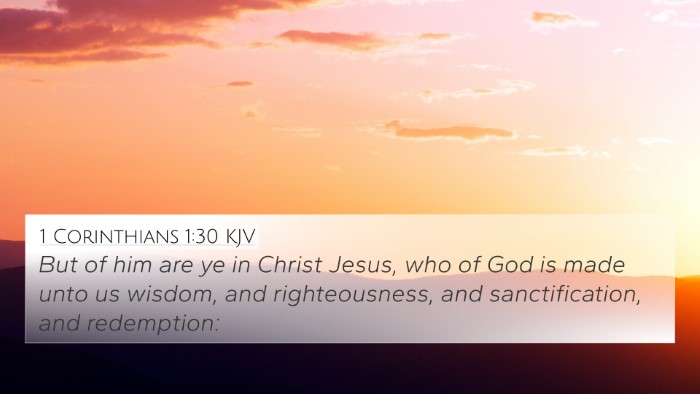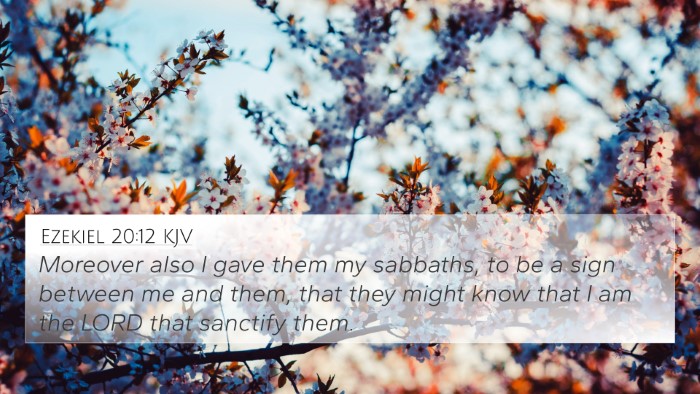Understanding Leviticus 20:8
Bible Verse: Leviticus 20:8 - "And you shall keep my statues and do them: I am the Lord which sanctify you."
Summary of Meaning
Leviticus 20:8 emphasizes the importance of obedience to God's commandments as a condition for holiness and sanctification. This verse serves as a reminder to the Israelites of their covenant relationship with God, highlighting the necessity of adhering to His laws in order to be consecrated for His purposes. The verse encapsulates the theological theme that true holiness is characterized by a commitment to divine ordinances and ethical living.
Commentary Insights
-
Matthew Henry:
Henry notes that obedience is fundamental to maintaining the relationship with God. By keeping God’s statutes, the Israelites not only demonstrate their faith, but they also serve as a testimony of God’s holiness among the nations.
-
Albert Barnes:
Barnes elaborates on the concept of sanctification, explaining that the process of being made holy is intrinsically tied to the observance of God's laws. He illuminates that to be 'sanctified' by the Lord is to be set apart for a divine purpose, which involves both moral and ceremonial observances.
-
Adam Clarke:
Clarke emphasizes the dual aspects of obedience and divine empowerment. He connects this to the broader narrative of the Israelites' journey, where their success and blessing depend on their faithful adherence to God's instructions.
Cross-References
Leviticus 20:8 can be cross-referenced with the following Bible verses:
- Exodus 19:5-6: "Now therefore, if you will indeed obey my voice and keep my covenant, you shall be my treasured possession among all peoples." This verse underscores the importance of obedience to God’s voice as a means to be set apart.
- 1 Peter 1:16: "Since it is written, 'You shall be holy, for I am holy.'" This New Testament echo reinforces the command for holiness derived from God's own nature.
- Deuteronomy 28:1: "And if you faithfully obey the voice of the Lord your God, being careful to do all his commandments that I command you today, the Lord your God will set you high above all the nations of the earth." It shows the blessings that follow obedience.
- Romans 6:22: "But now that you have been set free from sin and have become slaves of God, the fruit you get leads to sanctification and its end, eternal life." This verse links sanctification based on obedience in a New Testament context.
- Hebrews 12:14: "Strive for peace with everyone, and for the holiness without which no one will see the Lord." It commands pursuit of holiness, emphasizing its necessity for divine communion.
- Matthew 5:48: "You therefore must be perfect, as your heavenly Father is perfect." This highlights the call to holiness in relation to God’s character.
- Galatians 5:22-23: "But the fruit of the Spirit is love, joy, peace, patience, kindness, goodness, faithfulness, gentleness, self-control..." This verse speaks to the outcomes of living in accordance with God's commandments, which ultimately lead to the manifestation of spiritual fruits.
Thematic Connections
The themes associated with Leviticus 20:8 span both the Old and New Testaments, facilitating deeper connections that enrich the understanding of holiness and obedience. Below are avenues for exploring these themes through cross-referencing:
- Obedience and Holiness: There is a consistent biblical theme linking holiness with obedience across different scriptural contexts.
- Sanctification: The notion of being set apart for God’s service resonates in both Levitical law and New Testament teachings.
- Covenant Relationship: The covenant aspect underscores a two-way commitment between God and His people, requiring fidelity to His statutes.
Conclusion
In conclusion, Leviticus 20:8 serves as a vital reminder of the significance of obedience in the pursuit of holiness. By studying this verse and its connections to other scriptures, believers are encouraged to cultivate a lifestyle that reflects their commitment to God's commandments. The rich theological implications and cross-references deepen the understanding of how God's call for holiness spans the entirety of the Scripture.



